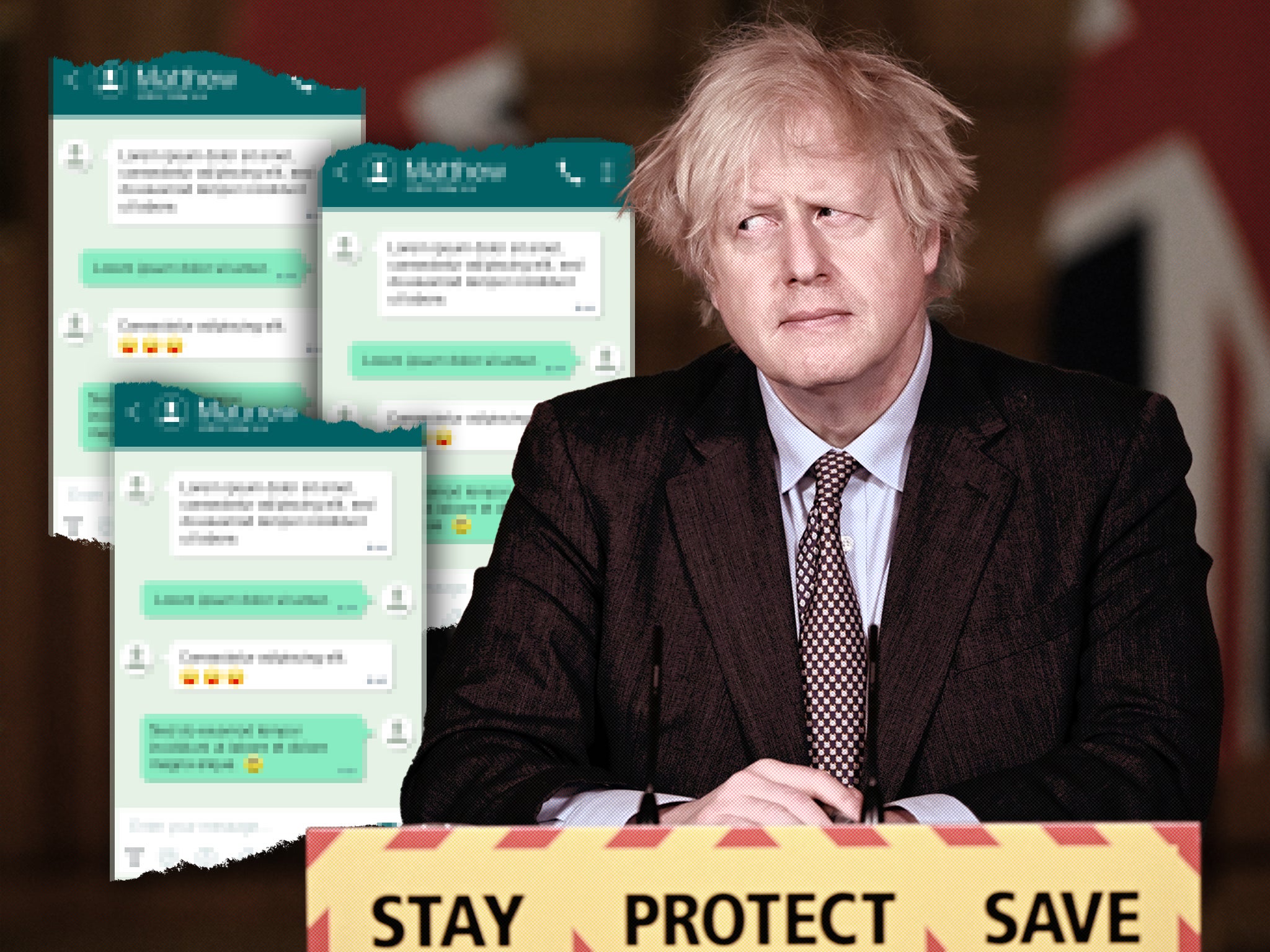You’ll hate me for saying it, but the Covid inquiry is a colossal waste of time and money
The former prime minister is going to make the inquiry all about him, writes John Rentoul


The danger of the Covid inquiry was always going to be that its central character, Boris Johnson, would turn it into a circus. We are already well on the way to realising that, as Baroness Hallett, the chair of the inquiry, threatens to sue the former prime minister to secure the release of his WhatsApp messages.
At the same time, the legal trawl through government paperwork has thrown up evidence of possible further law-breaking by Johnson, which has been referred to the police.
You can bemoan the shallowness of journalism if you like, but the idea that the public would be interested in the finer points of the lessons for future pandemics rather than the processology of the hunt for a smoking gun was always unrealistic.
It was always bound to be thus. “Just as the Chilcot report became an exercise in trying to make Tony Blair cry on TV, so the Covid inquiry threatens to be overshadowed by Boris Johnson,” wrote William Atkinson for CapX. Never mind “whether the NHS was ready or if school closures were justified”, he said: the coverage of the inquiry was always likely to focus on “cake, ABBA parties, and Dilyn the dog”.
That is why I opposed the public inquiry from the start. I am all for learning from what was done well and badly so that we can prepare for the next pandemic, but I think those lessons have already been learnt. If not, then a fast, science-centred review might have been a better idea.
The problem is that, politically, the demand for an inquiry is driven by the widespread conviction that Johnson and his ministers did wrong; that people died and there should be hell to pay. The polite version of this imperative is that we owe it to the bereaved to find out “the truth”. But this is just a way of dressing up an atavistic need to seek vengeance after a calamity.
The point of an inquiry such as this, just as it was with Hutton and Chilcot, is to prove what “everyone knows”, and to bring the pre-identified guilty to account. When the inquiry finds, as it inevitably will, that it was all a lot more complicated than that, there will be the cry of “whitewash”, although the caravan of public outrage may have moved on by then.
What “everyone knows” about the pandemic is that Johnson locked down too late because he failed to take it seriously. What the inquiry will find is that he and his ministers followed the scientific advice, certainly in the early phase of the pandemic. It is possible that the government’s scientific advisers should be criticised for not advising earlier action. Even if that is shown to be true, it is unclear how much difference it would have made, given that people had already dramatically reduced social mixing 10 days before the formal lockdown was announced.
None of this will make any difference to the popular conviction that Johnson’s incompetence cost lives, just as no one paid any attention to the Hutton and Chilcot inquiries’ findings that Tony Blair and his government had been honest in making the case for military action in Iraq.
And in the meantime, there will be endless coverage – because it is fascinating – of who hated whom, and who said something tasteless or absurd in a fleeting communication in the heat of the moment. Arguments will rage about procedure, and why we taxpayers should pay for Johnson’s legal bills (the answer to that being that, if we are to have an inquiry, it is into his conduct as prime minister of our elected government).
No one is likely to have their mind changed by anything that emerges from the inquiry. Just as no one is going to form a different opinion of Johnson’s truthfulness as a result of the investigation by the House of Commons privileges committee. That investigation is driven by the same spirit of vindictiveness as the public inquiry. Whether Johnson knowingly misled parliament is a political question on which MPs and public opinion have already ruled, in effect, and for which Johnson has paid a heavy price. There is still time to cancel it and save some public money, which could be put towards clearing the NHS coronavirus backlog.
As for the families of people who died of coronavirus: if we really care about them, there ought to be better ways of honouring their memory than a protracted media circus about who swore at whom in the former prime minister’s WhatsApp messages.

Join our commenting forum
Join thought-provoking conversations, follow other Independent readers and see their replies